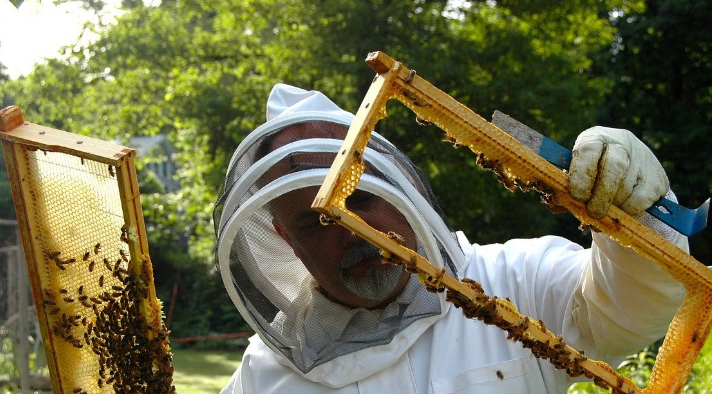According to him, the KVIC has distributed over 2,29,409 bee boxes and bee colonies across the country, resulting in the production of approximately 20,000 metric tonnes of honey, generating an income of Rs 325 crore for beekeepers.

In what is becoming a big success story, beekeepers earn Rs. 325 crore by generating over 20,000 metric tonnes of honey under the Honey Mission undertaken by the Khadi and Village Industries Commission (KVIC).
“Bees are the backbone of our ecosystem. They not only produce honey but also enrich agriculture through pollination and contribute to environmental conservation,” said KVIC Chairman Manoj Kumar.
According to him, the KVIC has distributed over 2,29,409 bee boxes and bee colonies across the country, resulting in the production of approximately 20,000 metric tonnes of honey, generating an income of Rs 325 crore for beekeepers.
“In financial year 2024-25, beekeepers associated with KVIC exported honey worth Rs 25 crore,” he said.
The KVIC Chairman also stated that Prime Minister Narendra Modi’s clarion call for a ‘Sweet Revolution’ paved a new path where honey production became a source of both economic and health prosperity. KVIC’s work in this direction is a significant step toward building an Atmanirbhar Bharat.”
“The Honey Mission is not just a scheme; it is a holistic livelihood model. Today, thousands of youth, women, and farmers in rural areas are gaining employment through this mission. The honey processing plants, training centres, and marketing networks developed by KVIC have made beekeeping a viable path to self-reliance,” KVIC CEO Roop Rashi said.
The programme spotlighted the historic contribution of the Central Bee Research & Training Institute (CBRTI), Pune, which was established in 1962. The institute has trained over 50,000 beekeepers in modern apiculture techniques.
CBRTI’s role extends beyond honey production to enhancing agricultural and horticultural productivity through pollination, fostering bee-related research, and nurturing rural entrepreneurship.
During the event, scientists underscored the ecological importance of bees, revealing that they contribute to the pollination of approximately 75% of food crops. Without bees, nearly 30% of food crops and 90% of wild plant species would face serious threats.







